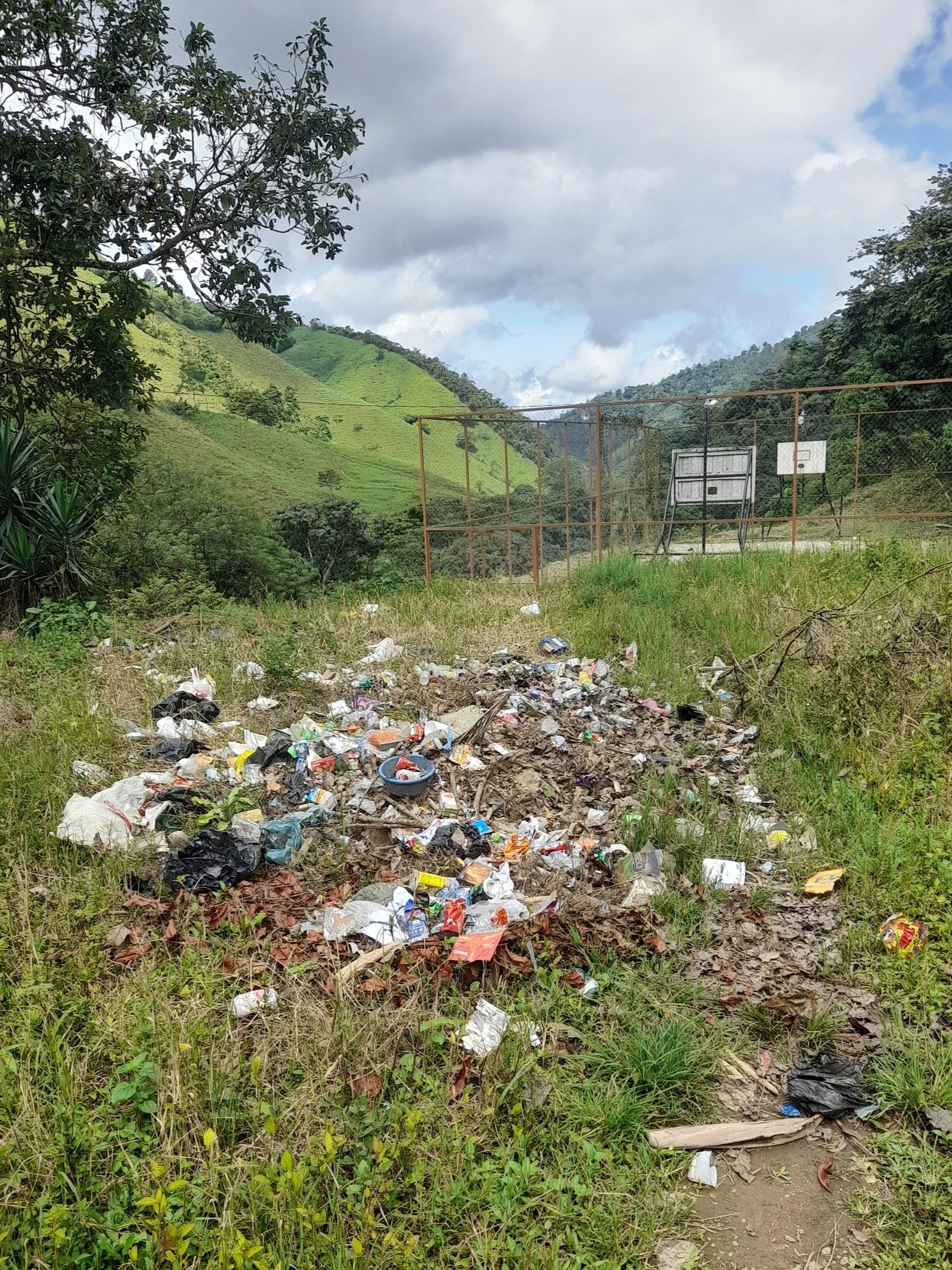Breaking Stigmas and Sharing Knowledge on Menstrual Health
A sit down with CAWST’s Karen Joe for Menstrual Hygiene Day 2024, together for a #PeriodFriendlyWorld
School girls with their teachers in a school in Honduras.
Menstrual hygiene is essential in creating a safe and inclusive environment. Yet each day, millions of women, girls and gender non-binary persons face discrimination, judgment and exclusion, simply because they’re menstruating. It is impacting their ability to get an education, earn an income and participate in daily life. Identifying the challenges is one thing, and here at CAWST, we’re passionate about not only creating a dialogue on the subject, but coming up with solutions so that everyone is engaged in empowering change in their communities.
On May 28th each year, the world recognizes Menstrual Hygiene Day to highlight the importance of good menstrual hygiene management and erase the negative stigmas that exist.
In recognition of today, we had the opportunity to sit down with Karen Joe, Knowledge and Research Advisor at CAWST, to answer some questions on menstrual hygiene and the work that’s being done on improving outcomes in this area. Karen is an experienced evaluator and has worked across Sub-Saharan Africa and the South Pacific regions implementing global health and development programs. She co-leads the water, sanitation and hygiene (WASH) subgroup of the Gender and Public Health Emergencies Group and has written a few articles on menstrual health hygiene including Menstrual Health During COVID-19: How Water, Sanitation and Hygiene can Improve Menstrual Health and Hygiene and Foster Gender Equality, Menstrual Health During COVID-19: How Water, Sanitation and Hygiene Can Improve Equality published in the Harvard Medical School Primary Care Review, and Gender, COVID-19 and Menstrual Hygiene Management.
Karen shares examples from Creating Safe Spaces for Learning: My Body, My Health, and My Future, a project in Honduras funded under the Fund for Innovation and Transformation (FIT) aimed at testing innovative solutions to advance gender equality in the Global South.
What are some of the barriers and challenges that CAWST works to address with our work when it comes to menstrual hygiene?
(KJ) Menstrual health and hygiene is multifaceted with many factors that impact it. In many communities where we work, the same barriers that exist with WASH also affect menstrual health and hygiene, including access and availability of clean water, soap, sanitation facilities, education and solid waste management systems. Education is needed to reduce stigmas and create broader awareness and understanding that menstruation is a natural process and that the other physical and emotional symptoms it brings are normal.
Product supply can pose a number of challenges as well. There is no one size fits all “solution” and what works in one community, may not work in another. It’s why community consultation is so critical when implementing programs. If women and girls don’t like using reusable pads, there’s no point in creating a training program to get people to sew them.
Karla Vargas from Pure Water for the World, Honduras, is talking to a group of girls about menstrual health and hygiene (MHH) options, showing a typical disposable sanitary pad.
Solid waste management is an emerging hot topic with our work – how to properly dispose of single use pads when proper incineration isn’t available in the community. Most people are found to either bury these non-biodegradable products or burn them, releasing toxic chemicals into the air which can impact health.
Unsafe disposal in a garbage pile at a school in Honduras.
What are some examples of good menstrual hygiene practices that you’ve witnessed from around the world?
(KJ) In recent years, there’s been a shift away from just targeting girls with menstrual hygiene education and recognizing the importance of educating men and boys as well. In many places around the world, menstruation is a taboo subject and bringing everyone into the conversation can help start to reduce the stigma. Positive community support, typically characterized by active and accurate discussions on menstrual health and hygiene led by key supportive adults, is a critical component of enabling a healthy environment.
A group of primary school boys are doing drawings of what they think “menstruation” is/means. We asked all of the students to do these drawings as a way to start the conversations about MHH.
Historically, menstrual hygiene management has focused largely on ensuring availability of products and the physical infrastructure needed in a community. While this is all very important, the best examples I’ve seen include looking at broader systemic factors that link menstruation with health, well-being, gender equality, education equity, empowerment and rights. When communities take on a more holistic approach to adolescent health, the wellness and dignified management of their periods increases greatly.
What are some of the impacts COVID-19 had on menstrual hygiene management?
Even though COVID-19 feels like it was a few years ago, we are still learning about its impacts. A lot remains to be seen and verified. That said, anecdotally, we know there were many negative consequences. Schools are where many adolescents would often get their sanitary products for free, so the closures we witnessed around the globe would’ve meant that many were either going without safe menstrual hygiene products, using unsafe or minimally helpful products, or resorting to other means to get money to purchase products. Tragically, we know there have been incident reports of transactional sex for girls to get money to buy pads.
Sexual education is most often being conducted in schools and healthcare centres. With closures and many healthcare centres being limited to emergencies and COVID-19 services, awareness and education related to menstrual health and hygiene was halted - a problem for both girls and boys who should be included in these conversations to reduce stigmas and learn about healthy management.
The lockdowns also created massive supply chain issues around the world, which impacted the availability of menstrual hygiene products in the markets in certain areas of the world.
A primary school girl is looking at a reusable/ hand sewn cloth pad.
How would you encourage people in Canada to get involved in advocating for menstrual hygiene issues globally?
Learn more: Check out CAWST’s Training Toolkit on Menstrual Hygiene Management: a tool for everyone.
Share information and break the stigmas: Use the hashtag #PeriodFriendlyWorld and #MHDay2024 for this year’s Menstrual Hygiene Day and help contribute to a conversation focusing on creating a world where no one is held back because they menstruate by 2030.
Learn more about CAWST’s work by subscribing to our e-newsletter, Global Notebook, to receive real-time updates from our staff in the field. Subscribe here: cawst.org/subscribe






